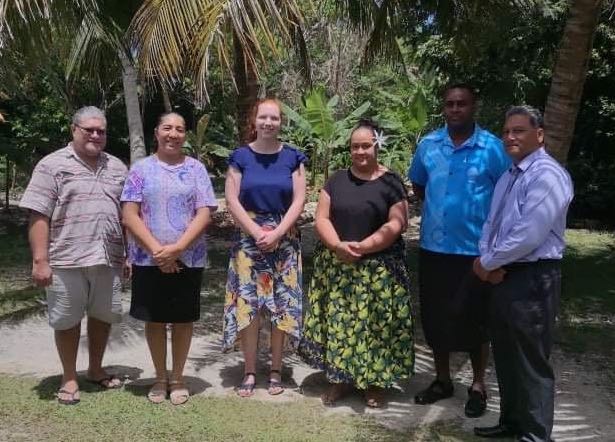
Erin Thomas, Research & Policy Coordinator just finished a trip to Niue to continue the work ICAAD started in 2017 around assessing gender-based violence in Niue, and these are a few of her notes from the field with you:
Fakaalofa lahi atu ki a mutolu (Hello all, in the language of Niue)
The 2017 ICAAD report, Assessing Gender-based Violence in Niue, revealed several challenges and opportunities for understanding GBV in small communities. With 1,600 people on Nuie and many more living in New Zealand, there are unique challenges for reporting and addressing GBV.
In October, I returned to Niue as a part of my master’s thesis at the University of Auckland, work with ICAAD, and in partnership with the Government of Niue. The goal of the trip, funded by the New Zealand Ministry of Foreign Affairs and Trade, is to explore both the formal spaces as well as the informal family spaces for dealing with GBV in terms of disclosure, accountability, gossip/talk, and education.
Gender-based violence (GBV) is a sensitive topic to discuss. My research in Niue is aimed at not only understanding the spaces in which GBV can be discussed, but also identifying and expanding new spaces through innovative qualitative methods. While most seek out quantitative data on prevalence, we sometimes forget the power and truth in narrative. The stories we tell ourselves and others drive us in our decision-making; they are literally how we make sense of the world.
My goal in this fieldwork is to elevate narrative as data. Data that in many ways has already been analyzed. Through family tree mapping interviews, I’m learning about how women make sense of their relationships, their roles in the family, and the meanings and consequences of GBV at different points in time.
Understanding the formal processes is important, but we know there is a lot that goes unreported. Further, data points like prevalence rates of different types of violence only tell us so much. While prevalence studies can provide useful data points, narratives are what connect the dots. Coalescing those narratives can provide a clearer picture of how disclosure, accountability, talk, and education related to GBV play out in a small community like Niue. It might also provide us with more qualitative tools to understand GBV in other places and further gender justice.
The fieldwork involves two parts. In the first part, I interviewed 27 key government and community leaders to understand the formal spaces for dealing with GBV and possible avenues they see for improving gender justice. In the second part, I used an innovative interviewing method involving 14 women to explore indirect experiences with GBV through family tree mapping. I will return mid-year 2020 to present a report to the Government of Niue and to meet with key government and community leaders to discuss pathways forward.
Tulou, fakaaue lahi. (Thank you)
